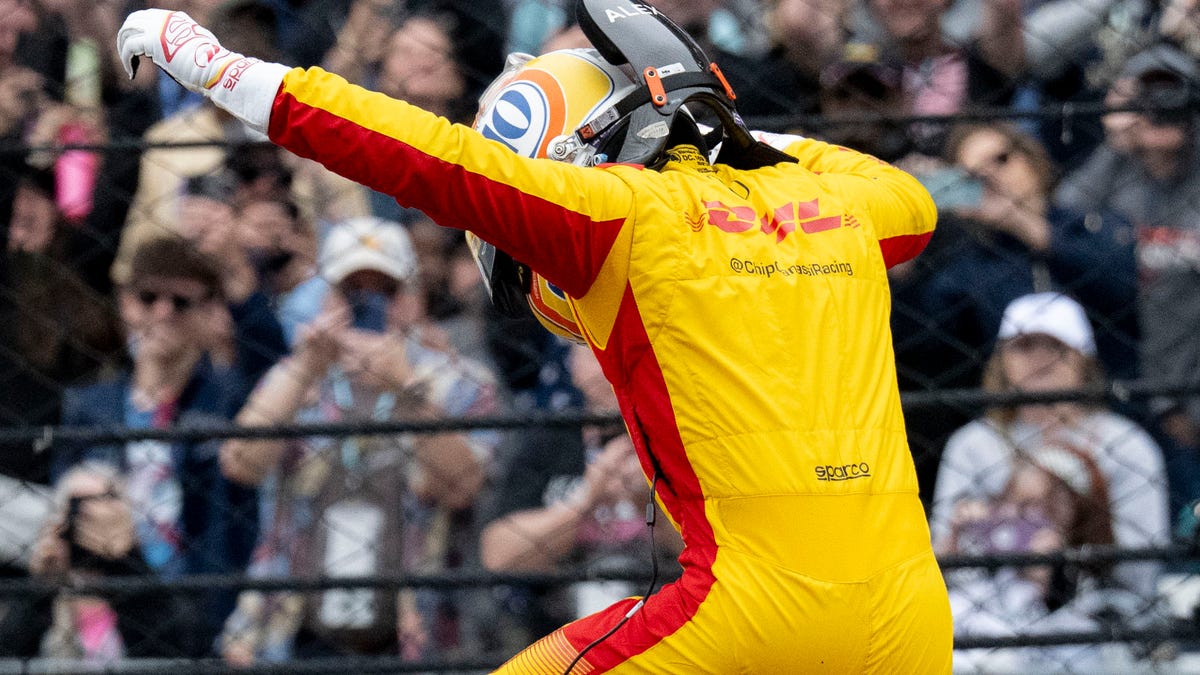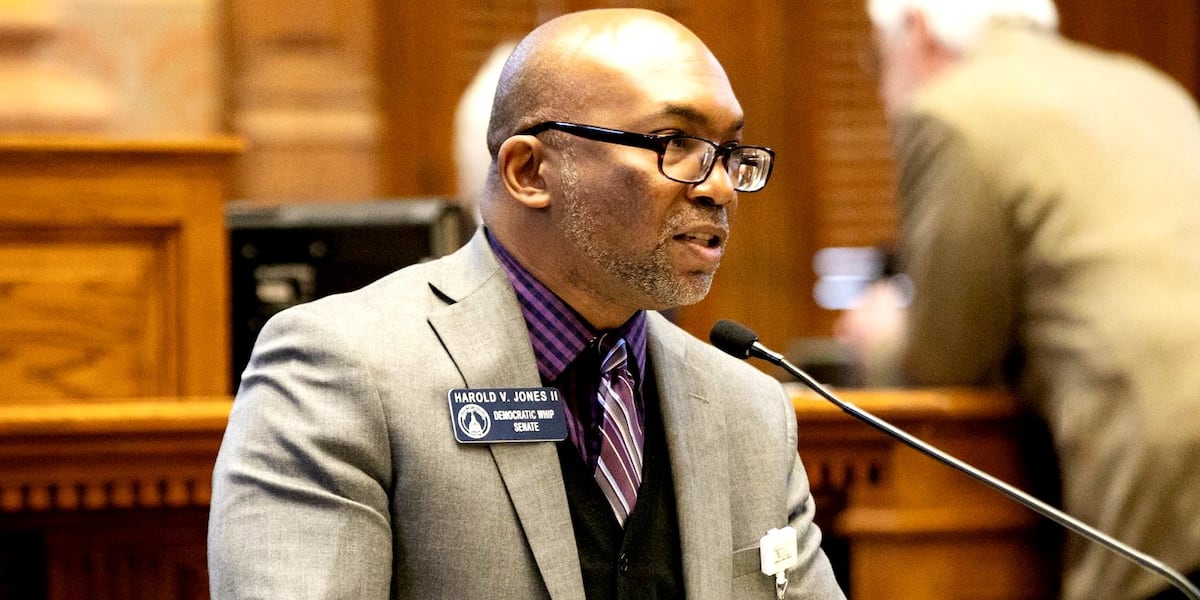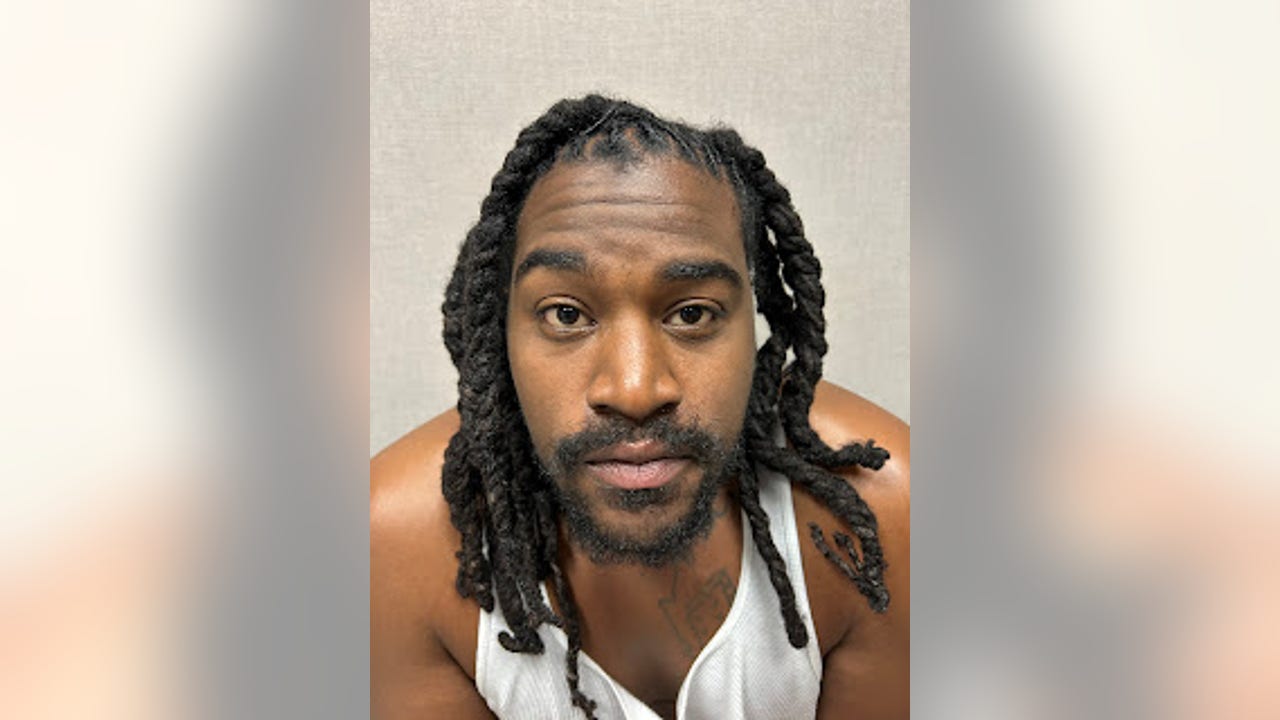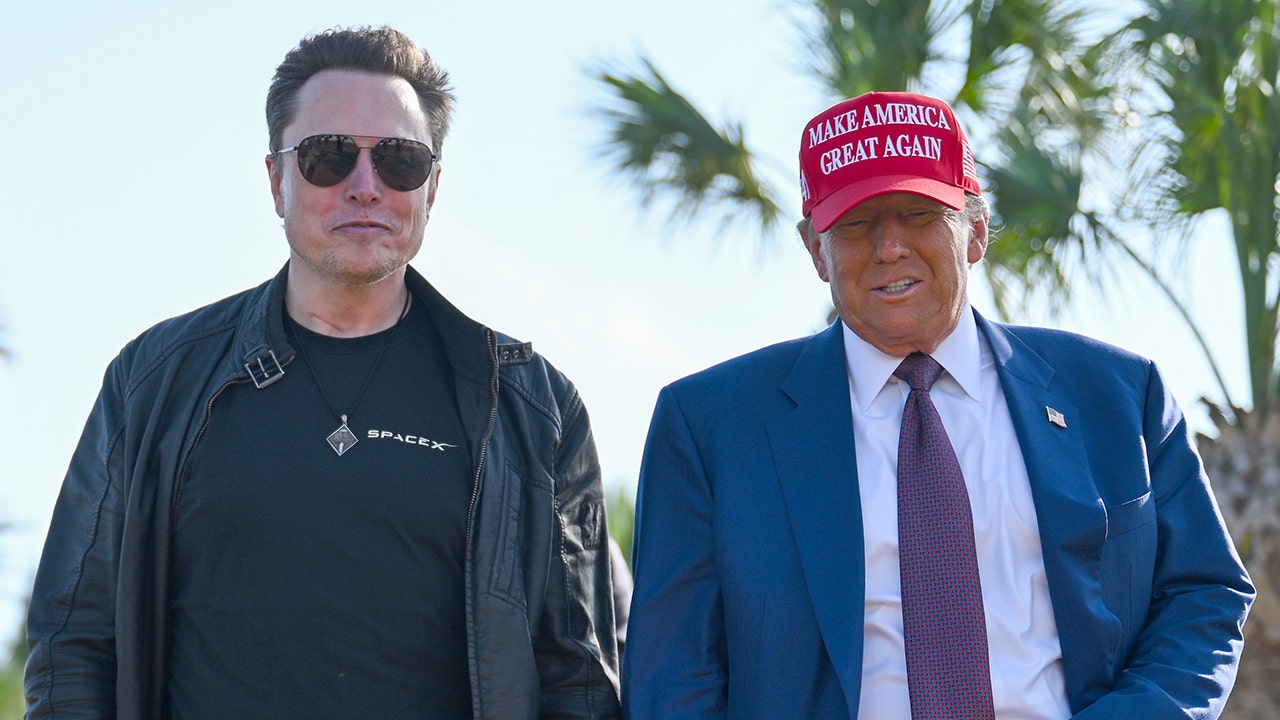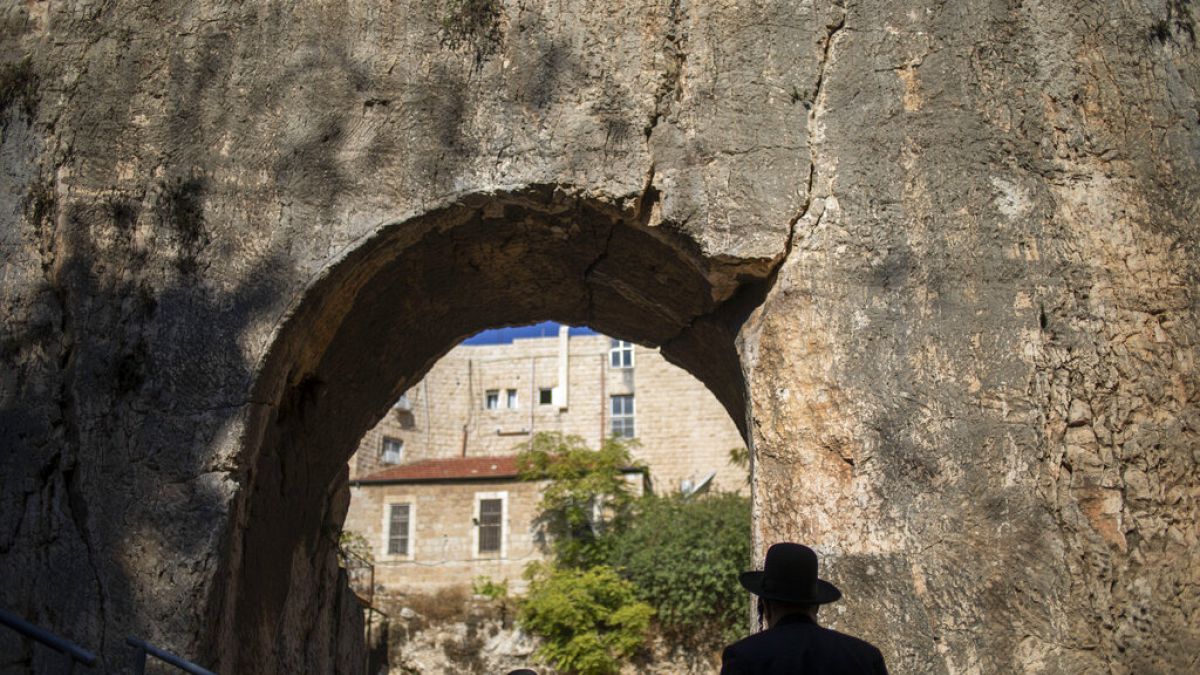Governor Gavin Newsom unveils an expansion of California’s film and TV tax credit program in October 2024.
Getty Images
West
Newsom foe picked by Trump for key prosecutor job vows to 'dismantle' sanctuary state shields
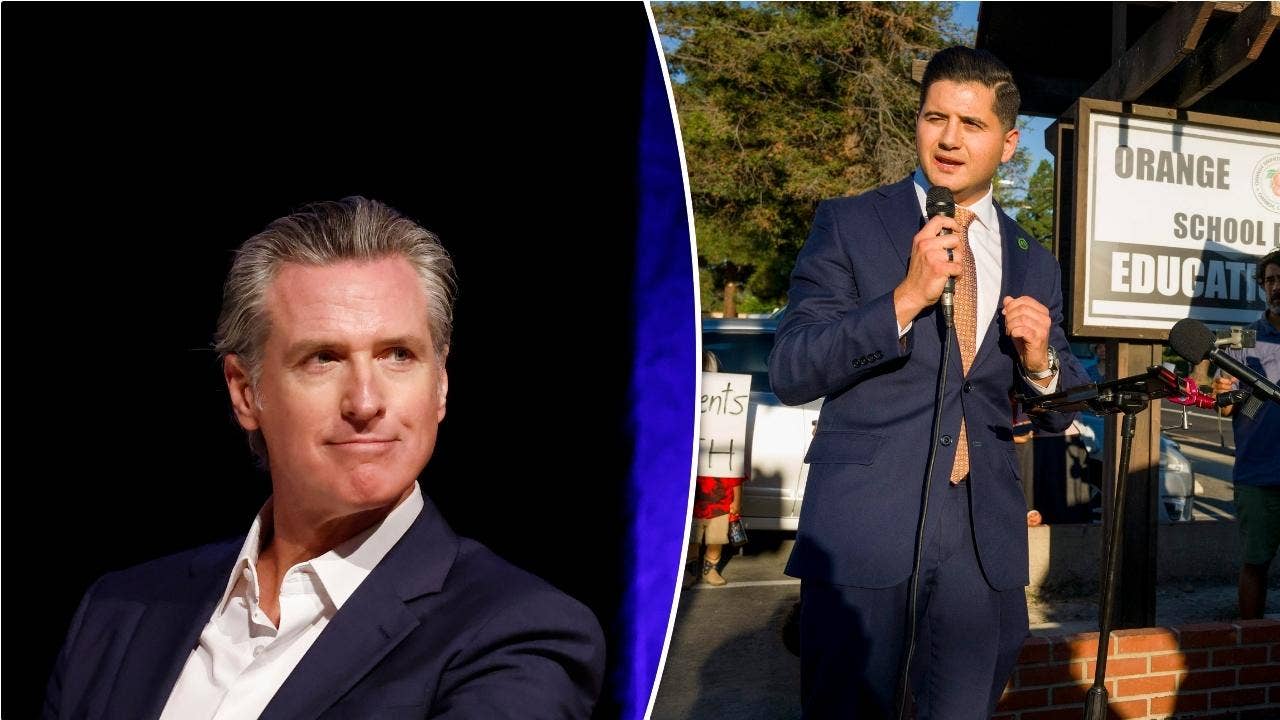
Republican California Assemblyman Bill Essayli is pledging to “dismantle” his state’s status as a popular sanctuary for illegal immigrants after President Donald Trump tapped him this week to head up a team of prosecutors for the nation’s largest federal district court by population.
“I’m excited to get to work and to implement their vision and their mission for the Department of Justice,” Essayli told Fox News Digital in a phone interview. “I think the first order of business is reassuring people and reinstilling trust into the Justice Department. I think for the last few years, it’s been weaponized, has been politicized, and the President’s made it clear that we’re going to restore trust into our law enforcement agencies and into the Department of Justice.”
Essayli, a lightning rod in California legislative politics who frequently spars with Democratic Gov. Gavin Newsom, said his commitment is to “restore law and order” in his new post as U.S. attorney for the Central District of California. “We’re going to get back to work,” he said. “We’re going to go after these transnational organizations, which the president designated as terrorist organizations.”
CALIFORNIA DEM COMPARES ‘SAVE GIRLS SPORTS’ LAW TO NAZI GERMANY, AS TWO TRANS ATHLETE BAN BILLS FAIL TO PASS
Republican Assemblyman Bill Essayli was named by President Donald Trump to be the U.S. attorney for the Central District of California. (Getty Images)
“We’re going to go after criminal illegal immigration,” Essayli continued.
Setting himself up for a potential showdown in the coming months with Newsom, who “Trump-proofed” the state with a $50 million legal fund to protect illegal immigrants in the state, Essayli vowed to “dismantle the sanctuary state status that they’ve enjoyed here in California.”
Brandon Richards, a spokesman for Newsom’s office, told Fox News Digital in a previous statement that “none of this funding will be used to support immigration-related services for criminals. Period.”
Additionally, Essayli said as U.S. attorney, his office will tackle public corruption, noting, “I don’t think we’ve had robust public corruption cases and investigations. It’s long overdue.”
When asked if Newsom had reached out to him since his appointment, Essayli laughed.
NEWSOM’S ‘UNFAIR’ REMARK ON GIRLS’ SPORTS BELIES RECORD AS GOVERNOR: ‘ABSOLUTE BULLS—‘

California Gov. Gavin Newsom, left, has often mixed it up with Bill Essayli, President Donald Trump’s pick for U.S. attorney for the district court that includes Los Angeles County. (Pool)
“No,” he said. “We don’t talk.”
Fox News Digital reached out to Newsom’s office for comment but did not hear back by the time of publication.
Essayli has gone head-to-head with Newsom’s administration throughout his Republican career in the state, criticizing the state over its handling of wildfire management, public safety, reparations and, most notably, parental rights in schools. It was not uncommon in the last several years to see Essayli at school board meetings voicing his opposition to policies that prohibited parental notification of their child’s gender identity.
When asked how he would go about removing sanctuary state protections for illegal immigrants, Essayli responded he will be working “hand in hand” with the Trump Justice Department and Attorney General Pam Bondi.
“We’re gonna put a plan together,” he said. “That’s not something I’m obviously prepared to discuss or signal at this point, but I assure you that something will be done, and when we do, it will be very well known in public.”
MAINE UNIVERSITIES AGREE TO KEEP TRANSGENDER ATHLETES OUT OF WOMEN’S SPORTS AFTER TRUMP ADMIN PAUSES FUNDING

California Assemblymember Bill Essayli, along with fellow lawmakers, honor women in California making an impact during Women’s History Month in Sacramento, California, on March 20, 2023. (Jason Armond / Los Angeles Times via Getty Images)
Just hours before his appointment to be the next top federal prosecutor in the district that includes Los Angeles County, Essayli introduced Assembly Bill 844, which sought to reverse California’s existing law that allows biological males to participate in girls’ and women’s sports teams corresponding to their gender identity. But the Assembly’s Committee on Arts, Entertainment, Sports and Tourism rejected AB 844 along party lines on Tuesday.
Essayli called the tolerance of trans girls in girls’ sports “not just bad policy, it’s also a flagrant violation of Title IX and puts California schools at risk of losing billions in federal funding,” during the committee hearing. “I believe California will come into compliance with Title IX, either through this legislative process or the court process.”
He resigned from his post as assemblyman that evening to accept the federal position.

Assemblymember Bill Essayli speaks “about the preferential treatment biological boys are receiving” and calls for the resignation of Riverside Unified Superintendent Renee Hill during community comments discussing the issue of transgender athletes competing in girls’ high school sports at the Riverside Unified School District meeting on Dec. 19, 2024. (Allen J. Schaben / Los Angeles Times)
In a news release, the U.S. attorney’s office said Essayli, born to two Lebanese immigrants, was sworn into the country’s largest attorney’s office outside of Washington, D.C., on Wednesday morning. The office, with over 250 lawyers on staff, serves roughly 20 million residents across the counties of Los Angeles, Orange, Riverside, San Bernardino, Ventura, Santa Barbara and San Luis Obispo.
Essayli previously founded the law firm Essayli & Brown LLP in 2019 and worked as a federal prosecutor from 2014 to 2018 in the Los Angeles and Riverside offices. During his time as an assistant U.S. attorney, Essayli handled high-profile cases, including the 2015 San Bernardino terrorist attack and a significant opioid prescription case. Prior to his federal role, he was a deputy district attorney in Riverside County and worked as an associate attorney at Paul Hastings LLP.
Essayli’s nomination to U.S. attorney requires Senate confirmation, but the president has the authority to appoint someone to the position on an interim basis before Senate confirmation.
Read the full article from Here

Alaska
'Come to the dark side': California inmate used lawyer in Alaska fentanyl empire, feds say

Before he worked for what he allegedly called “the cartel,” Justin Facey’s law career was unremarkable.
Facey’s modest solo practice was based in a gray Anchorage office building, where he shared space with personal injury attorneys, a chiropractor and a financial advisor. His website advertised expertise in defending run-of-the-mill cases: DUI, domestic violence, theft, assault.
But in 2023, Facey took on a client who changed his firm’s fortunes — and brought him under the eye of the U.S. Drug Enforcement Administration. Agents were monitoring the phone of a California inmate who was suspected of trafficking huge amounts of drugs to Alaska when they read a text message that Facey allegedly sent to a fellow lawyer.
“Come to the dark side,” he wrote in the message, which was cited in court documents. “I just signed a lease on a HUGE new office space. Three attorney offices, plus a paralegal bullpen, reception area, etc.”
Prosecutors say Facey broke the law working for Heraclio Sanchez Rodriguez, who has been serving a life sentence in California since 1998. Last week, Facey, 44, was charged with maintaining a “drug-involved premises,” as well as possessing a shotgun, rifle and two handguns while selling meth and fentanyl.
A lawyer for Facey, who has pleaded not guilty, didn’t immediately provide a comment.
From his prison cell in Monterey County, Sanchez, 58, used contraband cellphones to direct one of the largest drug trafficking organizations in Alaska history, federal authorities say. More than 60 people are accused of colluding with Sanchez to smuggle fentanyl, methamphetamine and heroin from Southern California to Alaska, where the narcotics were sold at staggering markups.
Sanchez has pleaded not guilty to charges that he trafficked drugs, laundered money and had two women kidnapped, murdered and buried in the Alaskan wilderness.
Facey acted as consigliere to Sanchez and, after his law license was suspended in February, became a drug dealer himself, prosecutors wrote in a motion seeking to jail the attorney pending a trial.
According to prosecutors, Facey began working for Sanchez in June 2023, around the time that the DEA tapped the prisoner’s cellphone.
Agents intercepted text messages in which Facey and Sanchez talked about using a private plane to spirit away an underling who had narrowly avoided arrest in Anchorage, prosecutors wrote in the bail motion.
Facey said he knew a pilot who could fly her to Montana. “Let me contact my people to be ready to take her out the country,” Sanchez replied.
The attorney later thanked Sanchez for having a package of fentanyl delivered to his home, prosecutors wrote. “I feel funny not paying — we can credit it for when you need some legal work done, if you want?” Facey wrote in a text message.
The lawyer and prisoner also allegedly discussed using laundering drug profits. In a text message cited by prosecutors, Facey complimented Sanchez for using “girls” as a “little revenue laundromat.”
Sanchez is accused of ordering the murder of Sunday Powers, an Alaskan woman who was caught at an airport carrying $20,000 of Sanchez’s money.
With Sanchez as a client, Facey bragged about his newfound wealth to “anyone in the Anchorage community who might listen,” prosecutors said in the bail motion.
In a text message, Facey allegedly wrote: “The cartel has retained my office for all their Alaska needs. So there’s guaranteed revenue, in cash, at the full hourly rate for the forseeable future.”
Facey said after he got a member of “the cartel” acquitted, “There was a knock on my door. Package sitting right there when I opened it. Inside was a watch manufactured by a very reputable purveyor of timepieces, two ounces of legit Bolivian flake and a brochure for the suite level at the Venetian.”
-
Share via
Imprisoned in California since 1998, Heraclio Sanchez Rodriguez is now accused of leading one of the largest drug trafficking networks in Alaska’s history.
Despite the boasts, Facey’s practice was collapsing. Clients filed 13 “grievances” and six payment disputes with the Alaska state bar about Facey, who had an ounce-a-day meth habit, prosecutors wrote in the motion to keep Facey jailed.
Facey also engaged in “compulsive sexual misconduct,” prosecutors wrote. An unnamed witness told authorities the lawyer was a “pig” and “disgusting slob” who extorted sex from her in exchange for legal representation, according to the motion to prevent his release.
After his license was suspended, Facey turned to selling drugs, according to prosecutors. By April, he told associates in text messages he was facing eviction. He posted in a public Facebook group for R.V. owners, writing, “Heya! I’m right in the middle of an unexpected, abrupt major life and career implosion, and I’ve decided to embrace the silver lining.”
He was thinking of selling everything he owned but his R.V., he wrote. Accompanied by his daughter and granddaughter, he’d leave Alaska “with no specific plan in mind but to roam the earth for a bit,” he wrote, “until something or somewhere grabs our attention.”
Facey is now in jail after a judge tentatively denied him bail. His lawyer will argue for his release in a detention hearing scheduled for Thursday.
Arizona
Takeaways From Arizona State Baseball Tournament Draw

The Arizona State baseball program is officially tournament bound.
The Sun Devils – coached by fourth-year head coach and program alum Willie Bloomquist – were officially selected to be the three seed in the Los Angeles regional on Monday morning.
With that, the selection ended several days of nervous waiting after the program sputtered to end the season.
Ultimately, the rough finish is in the rearview mirror now and the Sun Devils are looking to make the most of this chance – here are three takeaways for the weekend ahead:
This one is obvious – the Sun Devils are in a region with the host in 15th seeded UCLA, the second region seed in UC Irvine, and Mountain West champs Fresno State.
UCLA and UC Irvine are battle-tested over the entirety of the season, while Fresno State has picked up play as of late despite only putting together a 31-29 campaign to this point.
The region will be a challenge for the Sun Devils, but it isn’t insurmountable…
The Sun Devils have the talent to win the region – and UC Irvine’s recent run of opponents leaves reason to be concerned that the Anteaters aren’t currently conditioned to compete with power four competition despite having proven they can defeat high level programs this season.
UCLA also is one of the lower national seeds that received the opportunity to host a regional – it doesn’t seem insurmountable for the Sun Devils – who boasted the best offense across the entire Big 12 – to capture some magic once again and make a serious run.
It feels as if a win in the opening matchup with UC Irvine is a must however, which brings the last takeaway into the fray.
This Arizona State baseball team truly has the ceiling of a College World Series squad – but also the floor of a squad that goes winless in the tournament.
While it would be unlikely for the Sun Devils to drop an elimination game to (presumably) Fresno State, a fifth loss in as many games could potentially prove to be too much for a team that entered the season with so much promise.
The opening game of the Sun Devils’ tournament experience is set for Friday night at 6 P.M. Arizona time – the game is set to be broadcast on ESPNU.
Read more about the best-case scenario for ASU in the upcoming tournament here, and listen to the recent podcast covering the ultimate selection the Sun Devils received here.
Please let us know your thoughts on the upcoming tournament run for Willie Bloomquist and the Sun Devils when you like our Facebook page when you click right here.
California
California Is Doubling Its Film Incentive, but It May Be Too Late to Stop Runaway Production

“Mad Men” was set in 1960s New York, but it was mostly filmed at a studio just west of downtown Los Angeles. Sienna DeGovia was one of hundreds of people who worked on the show. Someone needed to re-create the food of that era, like savory Jell-Os and the carrots cut into one-inch cubes that used to be served on airplanes, and that’s what she does — she’s a food stylist. She started as an assistant 25 years ago and after learning the craft, became a lead stylist.
Los Angeles is full of weird jobs like that — or at least it used to be. But content production peaked in 2022, and the world’s entertainment capital has since been battered by a global contraction.
“The beginning of 2024, everything fell off a cliff,” DeGovia says. “I called all my old mentors and begged to be taken on as an assistant. I never had to do that in 20 years.”
The lack of work in Hollywood has renewed age-old calls for government intervention. Her father, Jack DeGovia, was a production designer who worked on “Die Hard” and “Speed.” In response to a downturn in 1999, he organized the Film and Television Action Committee, which took aim at “runaway production,” particularly the then-new phenomenon of shooting American films in Canada because it was cheaper.
“They were taking the bread out of our mouths and attacking our families,” says DeGovia, now 84. “They were making believe they were America. They’re not; they’re Canada. We were willing to play hardball with these guys.”
DeGovia led rallies in L.A. and Sacramento, where crews chanted “Film American!” and demanded a state tax incentive to match Canadian subsidies. That effort fizzled out. But a generation later, California has a production tax credit and is poised to double it in response to foreign incentives.
“We have to be more competitive,” Gov. Gavin Newsom said on May 14, noting that the business is on “life support.”
That may not be enough. Doubling the program should generate 4,000 to 5,000 jobs, according to state estimates. But in the past two years, California has lost 40,000 production jobs, according to the Bureau of Labor Statistics.
“Trying to be competitive, or close to competitive, is going to require not only a state effort but some sort of federal incentive,” says film producer Chris Bender, noting that at least 70 countries have a national subsidy. Jon Voight, a “special ambassador” appointed by President Trump, has pitched a national incentive as part of a plan to save Hollywood.
The industry has been dreaming about that idea for generations. Ronald Reagan backed a federal tax break to counter runaway production when he was governor of California in 1970. Twenty years before that, as president of the Screen Actors Guild, he lobbied President Truman on the issue.
“Runaway production is not new,” says Russell Hollander, national executive director of the Directors Guild of America. “What is different now is that we are experiencing a tremendous global contraction in film and television production.”
According to DGA data, every major production center — California, New York, Georgia, Canada and London — has seen a downturn in the past couple years. But it’s been more severe in the U.S. than overseas.
“Under these circumstances, every job that leaves the United States to chase foreign tax incentives takes on added significance,” Hollander says. “Recapturing that work has to become an even more important priority.”
In Canada, production subsidies are a matter of cultural sovereignty. Without them, Canadian movie theaters and TV screens would be overwhelmed by American content.
“We want to see ourselves reflected on our airwaves, as does every other country,” says Norm Bolen, former president of the Canadian Media Producers Association. Bolen is skeptical that the U.S. needs a federal subsidy. “From a Canadian perspective, that’s absurd,” he says. “Hollywood dominates everywhere. What’s the deficiency that needs to be addressed?”
He also disputes the idea that Canada offering subsidies to international producers caused a loss of U.S. jobs. “They weren’t really taking jobs away from Americans,” he says. “They were providing financial resources that allowed these productions to be made. They wouldn’t have been made at all.”
In 1986, Stephen J. Cannell was producing an L.A.-based action show for NBC called “Stingray.” Facing declining network fees, he hit on the idea of saving money by filming in Canada.
“We didn’t have much choice,” says Michael Dubelko, who was president of Cannell’s company. “We were a small company. We did it for survival.”
The company ended up in Vancouver, which had almost no production industry at the time. Cannell turned a former distillery into a TV factory, churning out “21 Jump Street,” “Wiseguy,” “The Commish” and other shows.
“We didn’t know what we were doing when we started,” Dubelko says. “It was crazy.”
In his view, filming on location in Los Angeles had simply become too expensive. Homeowners would demand $5,000 or $10,000 to rent their house for a day. Once the crew got there, a neighbor would fire up the lawnmower and demand to be paid to turn it off.
“We go to Vancouver, and they’d say, ‘Come on in and shoot for free,’” he recalls. “We weren’t being ripped off all the time.”
And with a favorable exchange rate, Dubelko estimates they saved at least $100,000 an episode — or more than $2 million a season. Of course, leaving L.A. behind created some backlash. “We took heat for it,” he says.
But soon, others followed.

Producer Stephen J. Cannell at his production offices at Paramount Studios in 1983.
Getty Images
The British Columbia film industry now employs thousands of people. Dubelko remembers being in Vancouver with Cannell a few years before he died. “We were going down the street, and people were stopping us, saying, ‘Oh my God, we’re in the business because of you,’” Dubelko says. “It was not one or two. Maybe 20 people came up to us and told us how grateful they were to him. He was really the one that pushed all this stuff. He was really a visionary.”
Lately, though, Vancouver has been hit hard by the contraction. According to the local crew union, only 25% of its members are working.
“We have been dead,” says Tonya Hartz, who has worked as a location scout in Vancouver for 28 years. “Production levels have been incredibly slow in 2025.”
Hartz knows people who have lost houses and are struggling to afford groceries.
Trump’s threat to impose a 100% tariff on foreign-made films, coming on top of blanket tariffs on Canadian goods and threats of annexation, has added to the strain.
“You can imagine the panic that rippled through our membership,” says Crystal Braunwarth, business representative of IATSE Local 891 in Vancouver, who fielded at least 50 calls after Trump’s threat.
While a movie tariff would probably be unworkable, some worry that U.S. producers may nevertheless shy away from filming abroad, exacerbating the downturn.
“This is a global industry,” says Spencer Chandra Herbert, B.C.’s minister of tourism, arts, culture and sport. “Trying to shut the door on it being a global industry misunderstands how the industry works.”
Canadian-based Gary Lam, an editor whose credits include “District 9” and “Terminator: Dark Fate,” says it’s not a zero-sum situation. “If it’s slow in Hollywood, it’s slow here,” he says. “We want Hollywood to be busy. When they get so busy they have trouble finding crew, that’s when we tend to get the call.”
Several in the Vancouver industry agree that the business moves in cycles, and they expect the slow period will not last forever. Lam says it’s also up to local governments to do what they can to help. “I do think that tax breaks and government support are the way to go,” he says.
So does the B.C. government, which recently increased its production incentive. “We’ve made this a priority,” Chandra Herbert says. “We’re responding to the same thing everyone else is. The major studios have reduced how much they’re spending. It’s been very hard on our workers.”
Dubelko isn’t convinced that a U.S. incentive is a great idea. When he was making TV, there were about 50 shows on the air. They would get Nielsen reports, and they all fit on one page. Now there are 500. “All this production that currently exists couldn’t have been done in one city or one state,” he says. “The business became very mobile in the mid-’80s. It was a very natural evolution that it would start being done outside Los Angeles.”
“How do you get that business back?” he says. “I don’t know. I don’t see how that happens.”
-

 News1 week ago
News1 week agoMaps: 3.8-Magnitude Earthquake Strikes Southern California
-

 World1 week ago
World1 week agoPortuguese PM’s party set to win general election, fall short of majority
-

 Politics1 week ago
Politics1 week agoAfghan Christian pastor pleads with Trump, warns of Taliban revenge after admin revokes refugee protections
-

 Politics1 week ago
Politics1 week agoTrump, alongside first lady, to sign bill criminalizing revenge porn and AI deepfakes
-
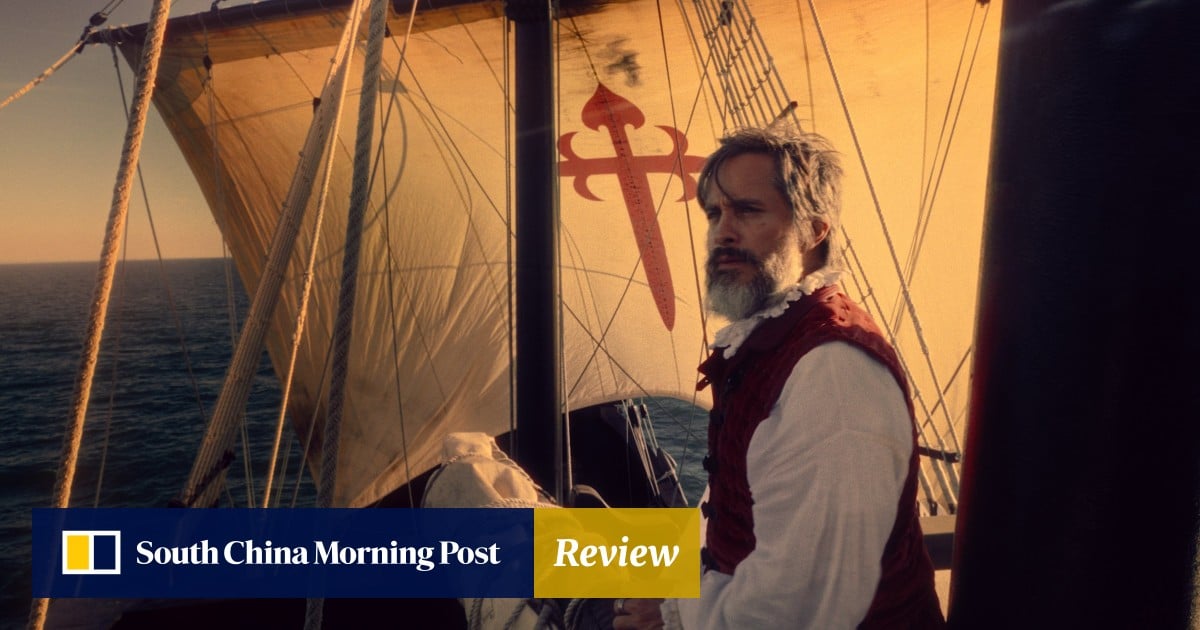
 Movie Reviews1 week ago
Movie Reviews1 week agoReview | Magellan, conqueror of Philippines, as we’ve never seen him before
-

 Education1 week ago
Education1 week agoHow Usher Writes a Commencement Speech
-

 Politics1 week ago
Politics1 week agoExpert reveals how companies are rebranding 'toxic' DEI policies to skirt Trump-era bans: 'New wrapper'
-
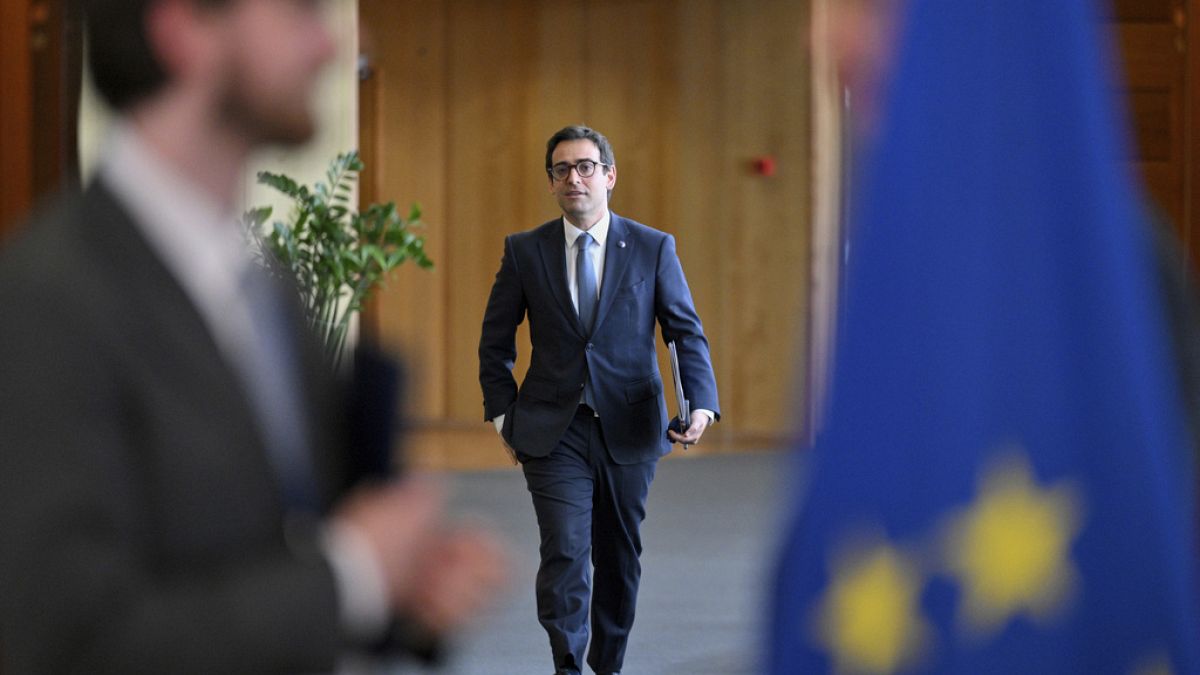
 World1 week ago
World1 week agoDigitisation fronts new Commission strategy to boost EU single market

